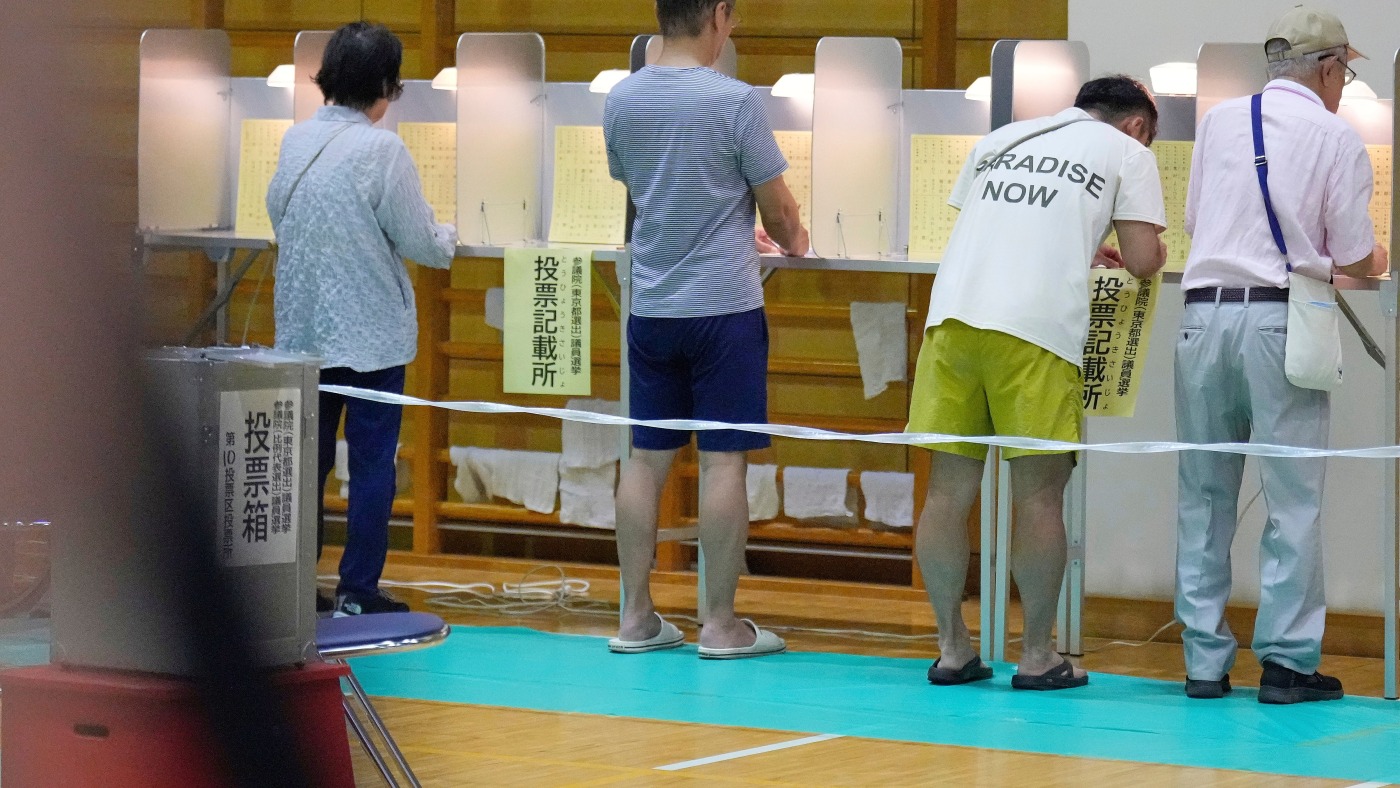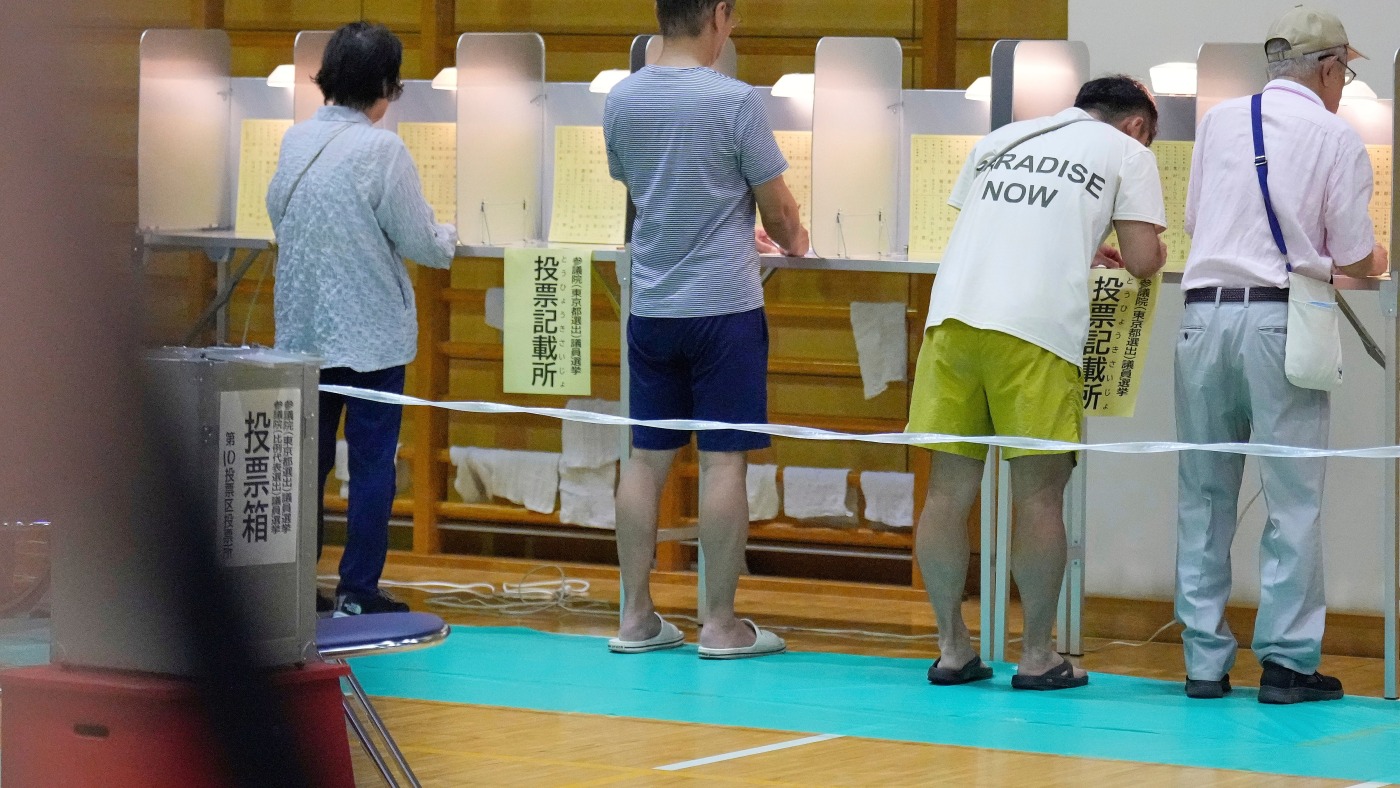The Ishiba Test: Analyzing Japan’s Upper House Election and Its Implications
Introduction: A Pivotal Moment in Japanese Politics
Japan’s Upper House election was more than a routine political event; it was a critical juncture that tested the leadership of Prime Minister Shigeru Ishiba and his ruling coalition. The results of this election have far-reaching implications for Japan’s political stability, economic policies, and international standing. As the nation grapples with economic woes, social tensions, and global uncertainties, the election outcomes will shape the trajectory of Japan’s future.
A Nation Divided: The Key Issues Shaping the Election
The Upper House election was marked by a deep divide within Japanese society, with several critical issues dominating the political discourse. These issues reflected the anxieties and frustrations of the electorate, influencing their voting decisions.
Economic Woes: The Burden on Households
One of the most pressing concerns for voters was the state of the economy. Rising prices, stagnant wages, and the sustainability of the social security system weighed heavily on the minds of many. The cost-of-living crisis has eroded the purchasing power of ordinary citizens, leading to widespread dissatisfaction with the government’s economic policies. The ruling coalition’s failure to address these economic challenges effectively became a significant liability in the election.
Immigration and National Identity: A Contentious Debate
The issue of immigration has become increasingly contentious in Japan, with a growing segment of the population expressing concerns about the impact of foreign residents on Japanese society and culture. Right-wing populist parties have capitalized on these anxieties, advocating for stricter immigration controls and a more nationalist agenda. This shift in public sentiment reflects a broader debate about Japan’s national identity and its place in an increasingly globalized world.
US Tariffs and International Relations: Navigating Global Uncertainties
The looming threat of US tariffs and broader uncertainties in the global trade environment added another layer of complexity to the election. Voters were keenly aware of the potential economic repercussions of trade disputes and sought assurances from political parties about their ability to navigate these challenges. The election results will influence Japan’s approach to international trade and its relationships with key global partners.
Political Scandals: Eroding Public Trust
The shadow of financial scandals involving members of the ruling party further eroded public trust in the government. These scandals highlighted issues of accountability and transparency, fueling calls for greater integrity in political leadership. The election served as a referendum on the government’s ability to address these concerns and restore public confidence.
The Stakes: A Test of Ishiba’s Leadership
The Upper House election was a critical test of Prime Minister Shigeru Ishiba’s leadership and the performance of his government. The outcome of the election had the potential to reshape the balance of power within the Japanese parliament and alter the course of policy-making. A significant loss would not only weaken Ishiba’s grip on power but also potentially trigger a period of political instability.
Scenarios and Potential Outcomes
The election results could lead to several different scenarios, each with distinct implications for Japan’s future. Understanding these potential outcomes is crucial for anticipating the direction of Japanese politics and policy.
Ruling Coalition Retains a Majority
If the Liberal Democratic Party (LDP) and its coalition partner Komeito managed to secure a combined majority of seats, Ishiba would likely remain in power, albeit with a potentially weakened mandate. This outcome would provide a degree of stability but may not fully address the underlying issues driving voter dissatisfaction. The ruling coalition would need to implement meaningful reforms to regain public trust and address economic and social concerns.
Ruling Coalition Loses Majority but Remains the Largest Bloc
Even without a majority, the LDP could attempt to form a new coalition government with other parties. This scenario would likely involve compromises and policy adjustments to accommodate the demands of potential coalition partners. The resulting government would need to navigate a complex political landscape, balancing the interests of various factions to achieve legislative success.
Opposition Gains Control
A significant victory for the opposition parties could lead to a change in government, potentially ushering in a new era of policy priorities and political alliances. This outcome could result in significant shifts in areas such as economic policy, social welfare, and foreign relations. The opposition would need to demonstrate its ability to govern effectively and address the pressing challenges facing Japan.
Increased Political Fragmentation
The emergence of smaller parties and independent candidates could lead to a more fragmented political landscape, making it more difficult to form stable coalitions and govern effectively. This scenario would likely result in policy paralysis and political gridlock, hindering Japan’s ability to address critical issues.
Beyond the Election: Implications for Japan’s Future
The outcome of the Upper House election will have far-reaching consequences for Japan’s future, impacting various aspects of society and governance. The choices made by voters will shape the nation’s trajectory in the coming years.
Economic Policy: Adjusting to New Realities
Depending on the election results, Japan could see shifts in economic policy, ranging from adjustments to fiscal stimulus measures to reforms of the social security system. The government’s approach to trade relations and international economic cooperation could also be affected. Effective economic policies will be crucial for addressing the cost-of-living crisis and ensuring long-term economic stability.
Social Policy: Addressing Diverse Needs
The election outcome could influence policies related to immigration, social welfare, and gender equality. A more conservative government might prioritize traditional values and stricter immigration controls, while a more progressive government could focus on expanding social safety nets and promoting diversity. Balancing these competing priorities will be essential for fostering social cohesion and addressing the needs of a diverse population.
Foreign Policy: Navigating a Complex World
Japan’s foreign policy could also be affected by the election results, particularly in areas such as defense spending, relations with the United States, and engagement with regional powers like China and South Korea. The government’s approach to international relations will shape Japan’s role in the global community and its ability to navigate geopolitical challenges.
Political Stability: The Foundation for Effective Governance
The election’s impact on political stability will be a key factor shaping Japan’s trajectory in the coming years. A decisive outcome could provide a foundation for effective governance, while a fractured political landscape could lead to gridlock and policy paralysis. Ensuring political stability will be crucial for addressing the complex challenges facing Japan.
The Rising Tide of Populism and Nationalism
One of the undercurrents in this election was the rise of right-wing populist parties capitalizing on anxieties about immigration and national identity. Their growing influence signals a potential shift in Japan’s political landscape, with implications for social cohesion and international relations. A surge in nationalist sentiment could lead to stricter immigration policies, increased protectionism, and a more assertive foreign policy.
Echoes of the Past, Visions of the Future
The election results could be interpreted as a reflection of Japan’s ongoing struggle to reconcile its past with its future aspirations. The country faces a complex set of challenges, including an aging population, a declining birth rate, and increasing economic competition from other nations. The choices made by voters in this election will shape how Japan confronts these challenges and defines its role in the 21st century.
Conclusion: A Crossroads Moment for Japan
The Upper House election represented more than just a routine political exercise; it was a crossroads moment for Japan. The outcome will determine the country’s direction on critical issues ranging from economic policy to social welfare and international relations. Prime Minister Ishiba faced a stern test of his leadership, and the results of the election hold profound implications for Japan’s future stability and prosperity. The voices of the Japanese people have spoken, and their verdict will shape the nation’s path forward. As Japan navigates this pivotal moment, the choices made today will echo into the future, shaping the nation’s trajectory for years to come.








